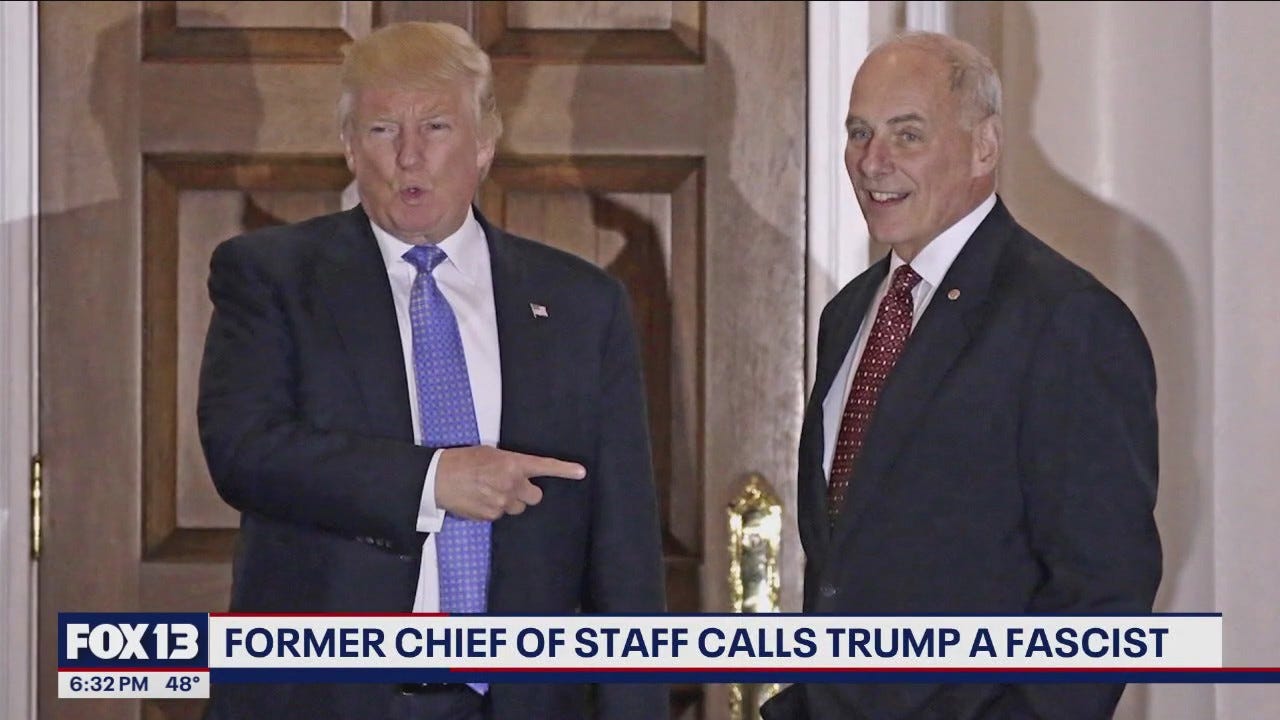What is a fascist and why is it a topic lately?

There are no openly fascist political parties in power in 2024, but the word has been a theme in the presidential election lately.
Vice President Kamala Harris accused former President Donald Trump of being a fascist on Wednesday during a CNN town hall in Pennsylvania. Her words came after — and referenced — comments made by one of Trump’s former chiefs of staff.
In an interview with the New York Times published Tuesday, retired Marine Corps General John Kelly claimed Trump, while in office, suggesting Adolf Hitler "did some good things" and that he wanted generals like those who served the fascist dictator.
"Well, looking at the definition of fascism: It's a far-right authoritarian, ultranationalist political ideology and movement characterized by a dictatorial leader, centralized autocracy, militarism, forcible suppression of opposition, belief in a natural social hierarchy," Kelly said in news reports.
On Wednesday, Harris was asked by CNN anchor Anderson Cooper whether she thought Trump was a fascist.
"Yes, I do. Yes, I do. And I also believe that the people who know him best on this subject should be trusted," Harris replied, in part..
Trump returned fire that night, taking to a social media post on X, calling Harris names and saying she had a “warped mind” for “going so far as to call me Adolf Hitler.”
What is fascism?
Fascism is a type of government where almost all the power is held by one person or a small group, often under one political party. It controls many parts of people’s lives, focuses more on the nation’s success than individual rights, and encourages strong loyalty to the ruling party, often disguised as patriotism. Fascism also places a big emphasis on military strength.
Fascism originated under the reign of Benito Mussolini, when he gained control of Italy in 1922 through his downfall in 1943. In the same era, Adolf Hitler rose to power as dictator of Nazi Germany. Both counties' fascist regimes came about through violent revolutions of governments and violent punishment of opponents.
More than 20 countries have had openly fascist governments at some point in the last century. No current governments call themselves fascist, but there are some that have been labeled by critics as fascist or pro-fascist.
The U.S. has never elected openly fascist candidates.